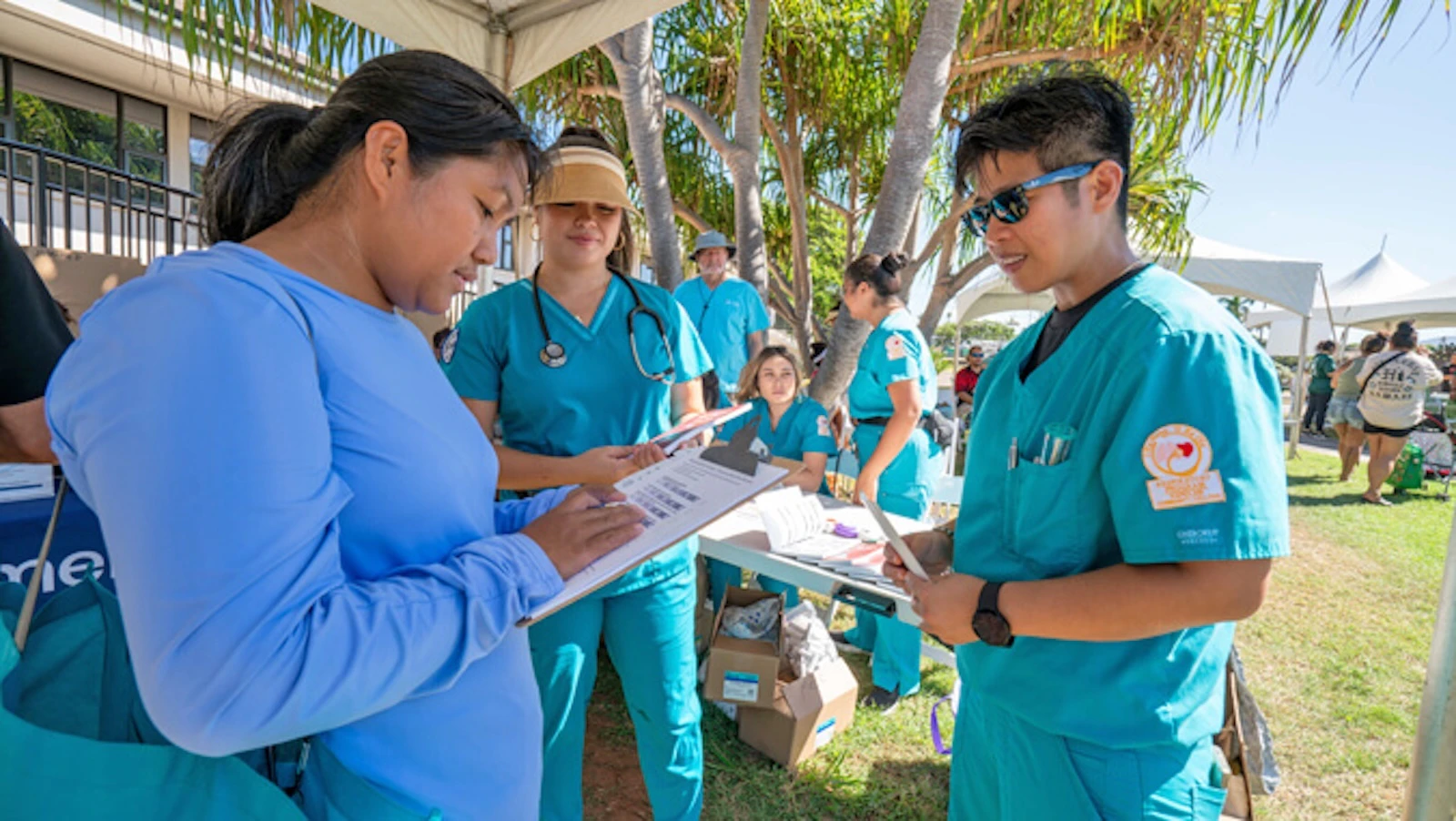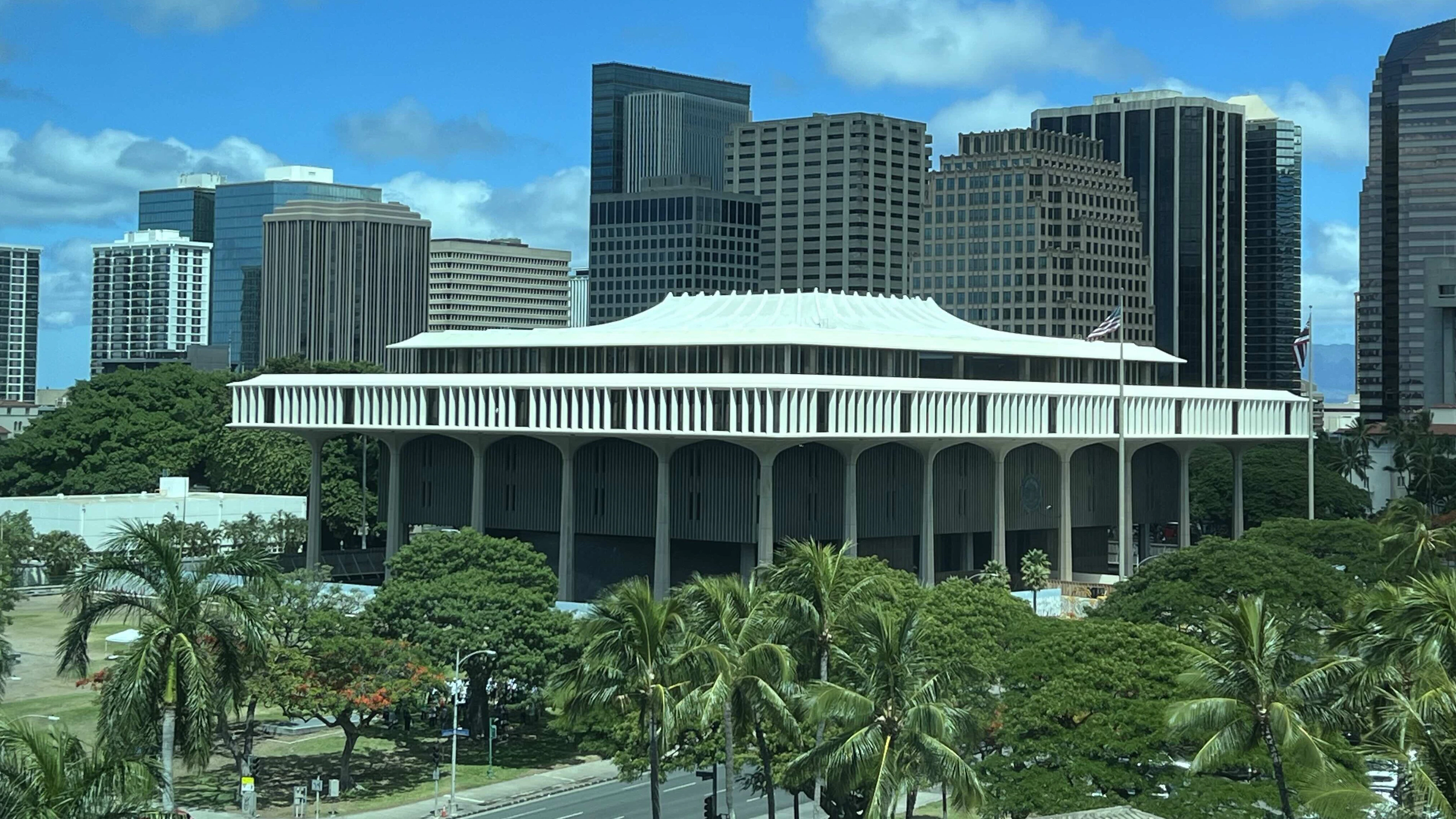A third-quarter forecast released Friday by the University of Hawaiʻi Economic Research Organization predicts that "a mild Hawai‘i recession [is] imminent."
Amid tariff hikes, inflation and payroll stalls, UHERO highlights the booming construction industry on Oʻahu and Maui as the sole bright spots. For example, "ongoing Skyline work and Aloha Stadium redevelopment will sustain industry employment near 40,000 jobs," UHERO noted, through the end of 2030 with "tariffs on the cost of materials" cited as one possible risk to the sector.
But that’s not the only sector projected to be hard-hit. Health care providers nationwide are reviewing the Fiscal Year 2025 Reconciliation Act, also known as the One Big Beautiful Bill Act, signed into law by President Trump on July 4.
According to the UHERO report, “The budget reconciliation bill cuts federal Medicaid and American Care Act marketplace funding by an estimated $1.1 trillion and SNAP funding by $187 billion over fiscal years 2025 to 2034.
“The Congressional Budget Office estimated that OBBBA would lead to 10 million Americans losing health insurance by 2034 and 2.4 million losing SNAP benefits. In Hawaiʻi, where more than 400,000 residents participate in Medicaid, over 160,000 receive SNAP benefits, and 43,000 households receive both, these changes could impact a large segment of the population, with potential ripple effects across the state’s economy.”
Because of OBBBA, The Kaiser Family Foundation also projects that 41,000 Hawaiʻi residents will lose Medicaid benefits. The Center on Budget and Policy Priorities estimates that 22,000 people in households with school-aged children and 8,000 in households with no children could lose SNAP benefits.
Though state tax relief in 2026 will provide some income support to local families, the potential cuts "will be a growing weight" starting January 2027, UHERO warns in the report.
Carl Bonham, UHERO Executive Director, said during a Thursday news conference that the Medicaid cuts could still be avoided. Congressional Democrats are developing a bill that would drop the cuts from the OBBBA before they go into effect at the end of 2026.
But if that doesn't happen, Bonham said, "Hawaiʻi could face a loss of $400 million in Medicaid spending."
Bonham added that small or rural health care providers could be the most at risk from that loss, particularly on Neighbor Islands. UHERO assistant professor Steven Bond-Smith noted that a loss of funding to rural providers on Neighbor Islands could open holes in health care services where people will be forced to travel to Oʻahu for treatment.
“These new requirements for safety net programs are likely to disproportionately affect Hawaiʻi given the state’s large concentration of low-wage, service-sector jobs. Moreover, cuts to Medicaid and SNAP benefits under the OBBBA could produce economic ripple effects,” UHERO wrote. “Reduced access to Medicaid would lead to poorer health outcomes and increased reliance on emergency care, and strain the finances of health care providers serving newly uninsured patients. The loss of SNAP benefits would also cause households to tighten their belts, reducing demand for groceries and other local goods and services. Nonprofits and government agencies may face new pressures as more residents turn to them for assistance.”
Are you a Hawaiʻi-based nonprofit or health organization that will be or has already been directly impacted by federal cuts to Medicaid? Please reach out to kelsey@alohastatedaily.com to schedule an interview. I want to hear and share your creative strategies and solutions.
For the latest news of Hawai‘i, sign up here for our free Daily Edition newsletter.
Kelsey Kukaua Medeiros can be reached at kelsey@alohastatedaily.com.





